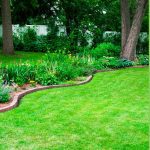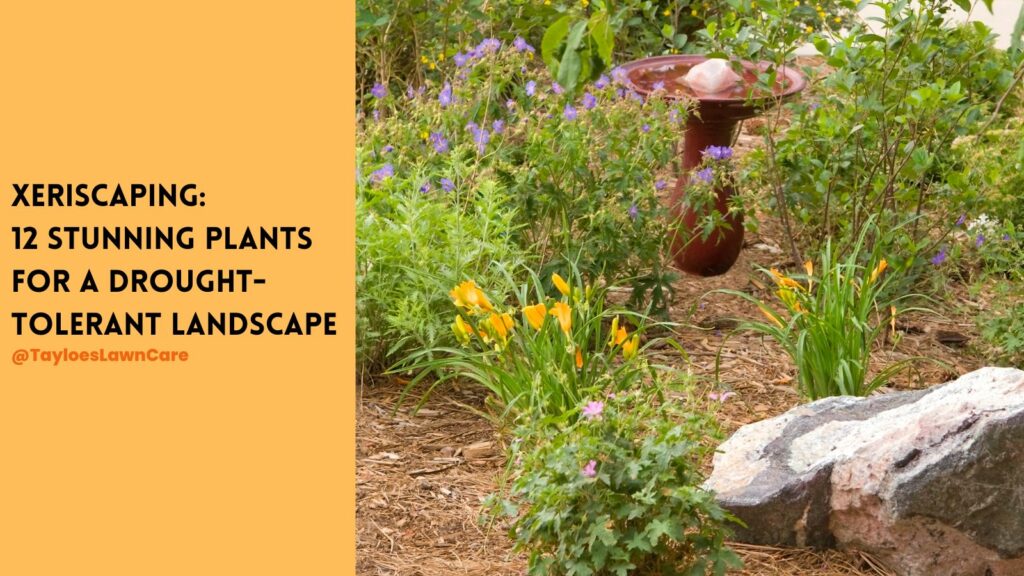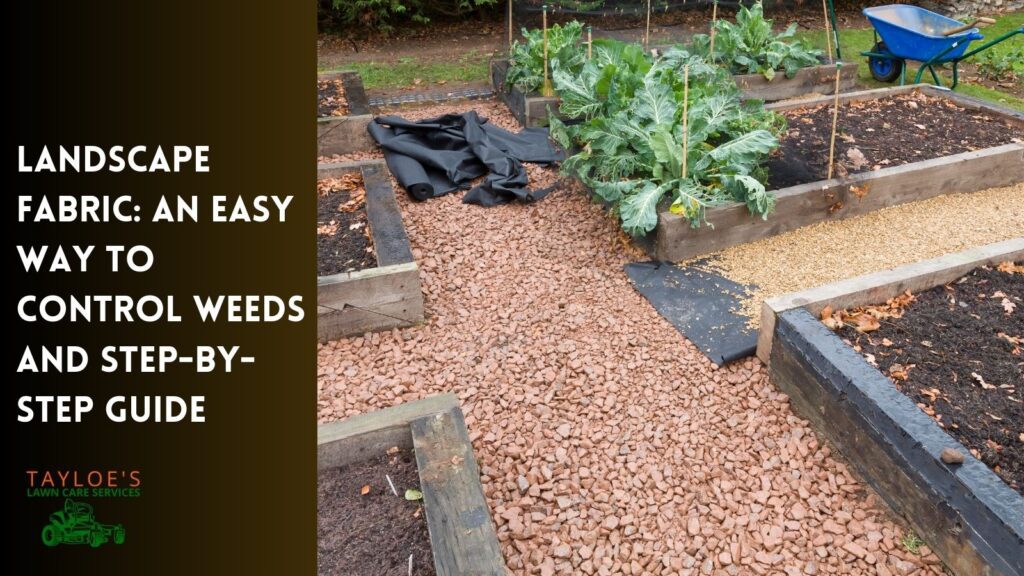Last Updated on: 6th December 2024, 11:24 am
Did you ever imagine you’d be reading about worm poop?
If you’re looking for an all-natural fertilizer to help your plants thrive, look no further than worm castings. Worm castings are the excrement of earthworms, packed with nutrients that plants love. So yes. Saying “castings” is just a fancy way to tell you we will discuss worm poo today.
In this blog post, I’ll explore the numerous benefits of using this incredible fertilizer in your in ground garden or raised beds and the surrounding soil. I’ll also provide information on how to use them effectively.
What Are Earthworm Castings?
Worm castings are the end product of earthworm digestion. When worms consume organic matter, they break it into smaller particles that plants can easily absorb. As the worms digest their food, they excrete waste in the form of nutrient-rich castings in irregular, but somewhat football shaped particles.
Are Worm Castings Manure?
This natural fertilizer forms when earthworms consume organic matter and digest it. As the food passes through the worm’s body, it breaks down and mixes with enzymes and bacteria. The resulting excrement is a rich, dark soil amendment packed with nutrients.
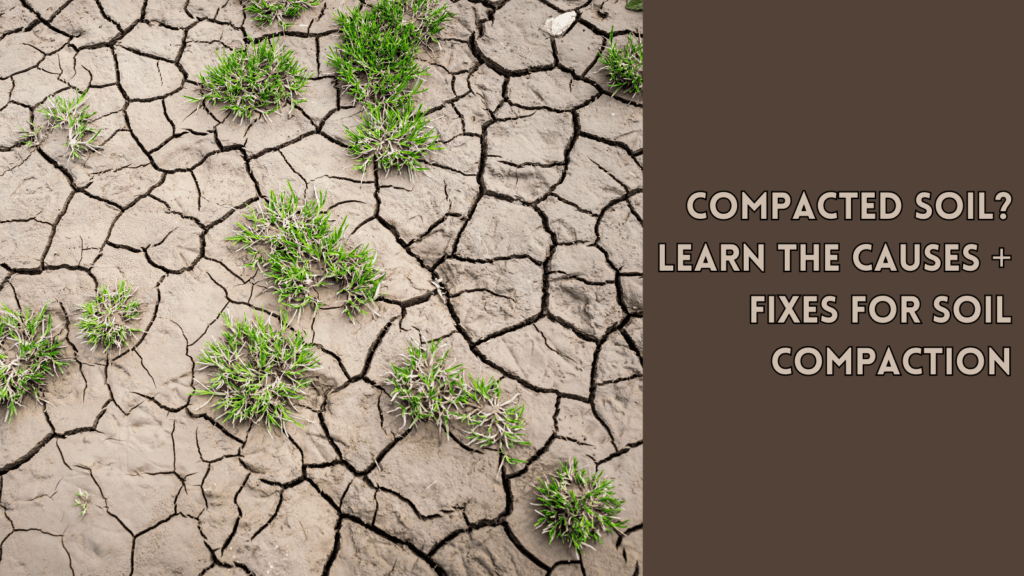
Worm Castings vs. Other Types of Fertilizers
This fertilizer differs from other types in several ways. Unlike synthetic fertilizers, which can contain harmful chemicals, they are all-natural and safe for the environment. They also contain a wide range of nutrients released slowly over time, providing long-lasting benefits for your plants.
Nutrient Content of Worm Castings
Worm poo is an excellent source of nutrients for plants. They contain high nitrogen, phosphorus, potassium, and other trace minerals that plants need to grow and thrive.
How Do These Nutrients Benefit Plants?
Nitrogen is essential for leaf growth and helps plants produce chlorophyll. Phosphorus helps plants develop strong roots and supports flower and fruit production and prevent wilt disease. Potassium helps plants regulate water balance and strengthens their immune systems. Trace elements and minerals like calcium, magnesium, iron, and zinc are a;sp key for plant health.
Comparing Worm Castings to Other Types of Fertilizers
Compared to other types of fertilizers, this organic option offers several advantages. They are all-natural, safe for the environment, and provide various nutrients. Better yet, they release slowly as side dressing, providing long-lasting benefits for your plants.
How to Use Worm Castings
Worm castings are helpful in a variety of ways in your garden. Here’s how to use them effectively:
Applying Worm Castings to Your Garden
To use this rich organic fertilizer in your garden, sprinkle them on the soil around outdoor or indoor plants. Mix them into the soil before planting, for transplanting seedlings, or when top dressing around existing plants.
Proper Ratio of Worm Castings to Garden Soil
How much soil per part of worm castings? Plan on a one cup or organic worm castings per three cups of garden soil. It’s a good alternative to costly potting soil.
How Often to Use Worm Castings and How Much to Use
You can use this fertilizer throughout the growing season to provide ongoing plant nutrition. For best results, apply this organic material every four to six weeks.
Making Worm Tea to Add Essential Nutrients and Beneficial Microbes While Watering
You can add worm castings while you water your potted plants, vegetable gardens, and more! Here’s how you can make worm compost tea.
Ingredients:
1 cup of organic worm castings (manure)
1 gallon of water (preferably rainwater or dechlorinated tap water)
1 tablespoon of unsulfured molasses (optional, but helps feed the beneficial microbes)
Equipment:
A 5-gallon bucket
A porous bag (like an old t-shirt, pantyhose, or cheesecloth)
An air pump with tubing and air stones (optional, but helps aerate the tea)
Instructions:
Prepare the Water: Fill the 5-gallon bucket with water. If using tap water, let it sit out for 24 hours to allow the chlorine to evaporate.
Make the Tea Bag: Place the worm castings into the porous bag and tie it securely.
Add to Water: Submerge the bag of worm castings in the water.
Aerate the Tea: If you have an air pump, attach the tubing and air stones to the pump and place them in the bucket. Turn on the air pump to aerate the tea. If you don’t have an air pump, stir the tea occasionally to keep it oxygenated.
Add Molasses: Dissolve the tablespoon of unsulfured molasses in a small amount of water and then add it to the bucket.
Steep: Let the tea steep for 24-48 hours. The water should turn a dark brown color.
Strain and Use: After steeping, remove the bag of worm castings and strain the tea if needed. Your Worm Tea is ready to use!
Apply to Plants: Dilute the Worm Tea with water at a ratio of 1 part tea to 10 parts water for foliar spray, or use it straight for watering plants at the base.
Worm Tea is a fantastic organic fertilizer that provides your plants with beneficial microbes and nutrients.
Four Benefits of Worm Castings for Gardening
Using worm poo in your garden can provide a wide range of benefits, including:
1. Improved Native Soil Structure
Worm castings help improve soil structure by increasing soil aeration and improving its ability to hold water and nutrients. This results in healthier soil that is better able to support plant growth.
2. Increased Plant Growth
The nutrients in worm poop can help plants grow faster and protect plants against certain plant diseases and resistant to pests. They can also increase the number of flowers and fruit produced.
3. Better Water Retention
They help soil retain water. As a result, you’ll need to water your plants less frequently. This can be especially beneficial during hot, dry weather.
4. Successful Gardening Projects Using Worm Castings
Many success stories of gardeners have used them to improve their soil and increase plant growth. For example, most gardeners have reported seeing more giant, healthier vegetables and flowers after using them.
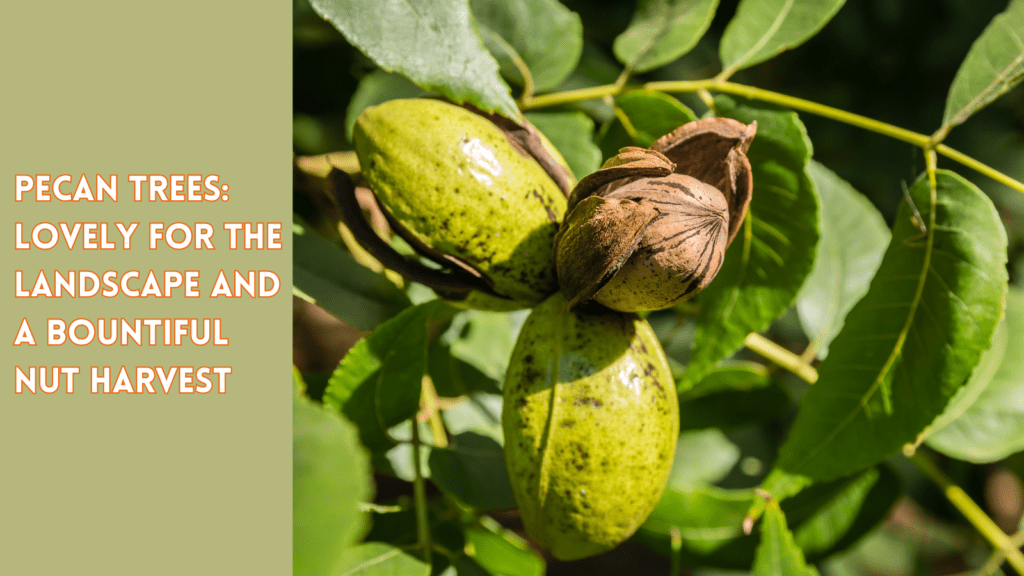
Keeping Worms for Homemade Worm Castings
If you want to use worm castings in your garden, consider keeping worms yourself. This can be a fun and easy way to produce this rich material while reducing food waste. You reap all the benefits when you make your own worm castings with just some small set-up costs.
Benefits of Keeping Worms
Keeping worms can be beneficial in several ways. It can reduce the food waste you produce and provide a steady supply of healthy organic matter for your garden. Additionally, worms can help break down organic matter and improve soil structure.
Setting Up a Worm Bin
You’ll need to set up a worm bin for them to live in. This can be done using a simple plastic container or a wooden box. You’ll also need to provide your worms with bedding material, such as shredded newspaper or leaves.
Maintaining a Worm Bin and Harvest Worm Castings
Maintaining the bin is relatively easy. You’ll need to feed your worms kitchen scraps regularly and keep the bin moist. Once your worms have produced enough castings, you can harvest them by separating the worms from the poops and using them in your garden.
Cost-Effectiveness of Keeping Worms for Worm Castings
Keeping worms for castings can be a cost-effective way to produce your fertilizer. While there is an initial investment in setting up the worm bin, the ongoing costs are relatively low. Additionally, producing your own fertilizer can save you money on store-bought fertilizers.
Where to Buy Worm Castings
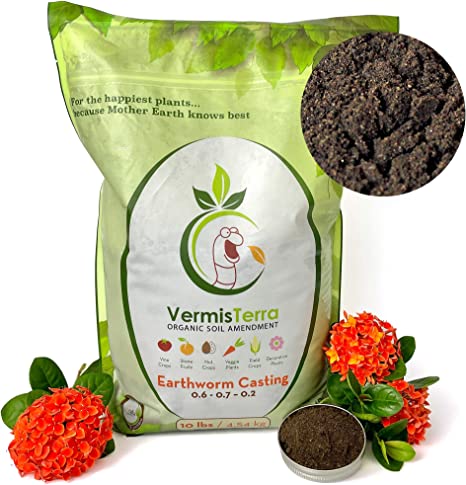
Note: I am an Amazon Associate. If you purchase by following this link, I may receive a small commission (at no cost to you!).
You can purchase worm poop from various sources, including garden centers and online retailers. Here are some places to consider:
Garden Centers
Many garden centers carry them as part of their selection of soil amendments. Look for a reputable garden center in your area and ask if they carry them.
Online Retailers
If you prefer to shop online, several retailers sell them. Look for a retailer specializing in gardening supplies and check customer reviews to ensure quality products.
Tips for Buying Worm Castings
When buying this rich organic material, there are a few things to keep in mind:
Look for products that are dark and crumbly. That is a sign that they are high in organic matter and have been adequately processed by the worms.
Avoid products that have a foul odor. This could indicate that they are not adequately processed or have been contaminated with other substances.
Check the nutrient content of the fertilizer. Look for products with a balanced nutrient profile and high in nitrogen, phosphorus, and potassium.
Following these tips and purchasing high-quality organic products can ensure your plants benefit from this all-natural fertilizer.

Worm Castings Help Promote Greater Yields in Your Garden
Worm castings are a valuable soil amendment that can help your plants grow faster and healthier. Whether you purchase or produce them yourself, incorporating them into your gardening routine can benefit you. So why not try them and see how they can improve your garden?
For more expert advice on landscaping, gardening, and exterior maintenance, follow Tayloe’s Lawn Care Service on Facebook. Need help? Call or text 252.287.3376.

Author Profile

- Deborah Tayloe is the CEO and co-founder of Tayloe's Lawn Care Services, LLC. She has a B.S.Ed and holds certificates in soil and water management and herbology from accredited programs.
Latest entries
 Flower GardenFebruary 24, 2026How do I take care of blooming crocus flowers?
Flower GardenFebruary 24, 2026How do I take care of blooming crocus flowers? Lawn CareFebruary 3, 2026Lawn care trends to expect in 2026
Lawn CareFebruary 3, 2026Lawn care trends to expect in 2026 Lawn CareDecember 29, 2025Commercial winter lawn care is a must
Lawn CareDecember 29, 2025Commercial winter lawn care is a must GardeningSeptember 27, 2025What perennials, shrubs, and trees don’t like fall pruning (and why)?
GardeningSeptember 27, 2025What perennials, shrubs, and trees don’t like fall pruning (and why)?


